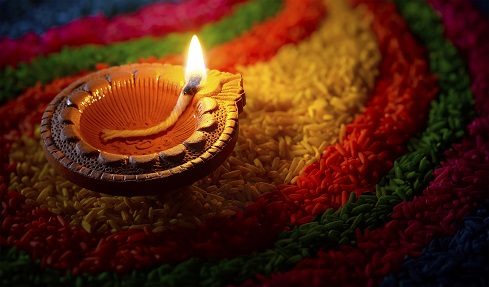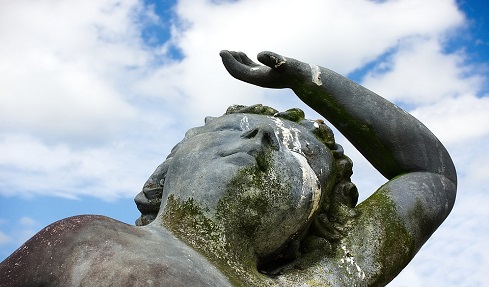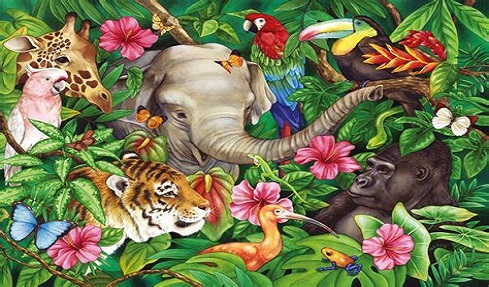KHENPO'S BLOG
Bardo Tödröl elucidates the whole process of death, the state of after-death and the process of taking rebirth. The book has received rather strong support in the West mainly because its contents have been validated by many near-death experiences of people who came back to life after a sudden death. The fact that the ancient text of Bardo Tödröl happens to match the clinical findings of modern medicine accounts for its great stature and influence. You should read the book if you are interested in knowing more about it.
~ Depicted from Luminous Wisdom Book Series : On Death And Rebirth - What Life Truly Is
For lay practitioners, the minimum is to take one hour each morning and evening to practice. Everyone should be able to manage at least this much in a day. The practice should begin with the cultivation of renunciation. Once that has reached some stability, go on to practice bodhicitta. After both renunciation and bodhicitta have been generated, move on to contemplate emptiness using the method of the Middle Way as a preliminary. The last is the actual practice of emptiness of which one may choose to go with the Vajrayana tradition if so wished, as Vajrayana practice may bring faster results. However, to practice Vajrayana entails empowerment and observance of the precepts. If unsure of keeping the Vajrayana vows, one can choose the exoteric practices instead, which may also lead to liberation but will take longer time to achieve.
Depicted from Luminous Wisdom Book Series: The Right View ~ The Twelve Nidanas - The Sequence of Cyclic
Before receiving the Buddha’s teachings, we did not understand samsara correctly, and we coveted and greedily pursued wealth and fame without any regard for the consequences. If one were to show no interest in such pursuits, one would most likely be considered abnormal. As a result, most people just follow others blindly and become slaves to money and fame. But the teachings of the Buddha destroy many of our deep-seated ideas about the world and life, and give us a brand new perspective which is above and beyond that of the uninitiated. No doubt others will try to refute the new standpoints, but they will not succeed as no other theories or philosophy can better the teachings of the Buddha.
~ Depicted from Luminous Wisdom Book Series : The Right View - The Four Noble Truths
How did the concept of the Three Dharma Seals originate? According to the sutras, when Sakyamuni Buddha was about to enter parinirvana, a disciple asked the Buddha, “If a non- Buddhist or some other person comes along after you are gone to give teachings and proclaims that to be the Dharma, how should we discern if it is the true Dharma?” The Buddha replied, “After I am gone, any belief or teaching which incorporates the Three Dharma Seals is the true Dharma; any belief or teaching which not only excludes but also refutes the Three Dharma Seals is not the true Dharma.”
~ Depicted from Luminous Wisdom Book Series : The Four Seals of Dharma - Summation
For us ordinary people, it would be very difficult to consider matters like renunciation, bodhicitta and liberation if we must struggle constantly to eke out a living. A harsh living condition may be helpful for some to generate renunciation, but renunciation developed under this circumstances is not real, as genuine renunciation must include aspiration to seek liberation. Poverty alone may not be enough reason for people to forsake samsara. Only those who have grasped the essence of the Dharma may possibly generate true renunciation. Therefore, Buddhists in general need not and should not deliberately live too poorly.
Depicted from Luminous Wisdom Book Series: The Right View ~ A Buddhist Mode of Life
By knowing what death really is, we will surely gain a new understanding toward life, and death in particular. At the least we know that death is neither mysterious nor terrifying as we tend to imagine. It is never the end of life but the beginning of life, only in a new body, not unlike copying from one hard disk to another. However, unwholesome actions done in this life will cause bad karma in next life; and if too much evil has been committed, even to be reborn as human again may be questionable. On this, we ought to be concerned about death, but death itself is not so frightening. Death, after all, is just a cycle of life. This is not only a Buddhist idea but also the personal experience of many people.
Depicted from Luminous Wisdom Book Series : On Death And Rebirth-What Life Truly Is
Although Vajrayana requires its practitioners to accept five meats and five nectars as part of the practice, beginners must stay away from them and use instead visualization or some herbal medicine as substitutes. If not, plainly eating meat and drinking alcohol will create huge demonic obstacles to one’s practice. What does it mean by demonic obstacle? On hearing this term, many people instantly picture a human or non-human being with eyes, ears, multiple heads and hands. These actually are just petty demons. The king of demons that would obstruct our practice is none other than the habit of eating meat. Such is the view of Vajrayana. So who says that eating meat is permissible with Vajrayana?
Depicted from Luminous Wisdom Book Series: The Right View ~ Why Vegetarian?
"Depending on each person’s own condition and capacity, all of us should at least try to be vegetarian from now on. The length of time to stay vegetarian is a personal decision, but the longer the better. Our motivation though should be different from that of the non- Buddhists whose primary concerns are mostly health related rather than considerations for the future lives or compassion for other sentient beings. We will not only stop eating meat but should also vow not to eat meat ever again. Absent the vow, simply stop eating meat would not be deemed a virtuous deed on its own. The vow should go like this, “By the merit of quitting meat now, may I never eat meat again in all future lives.
If I were to be reborn as an animal, I would hope to be a herbivore, never a carnivore.” With this, even if we should end up in the animal realm, we would not eat meat and not hurt any beings, including ourselves."
Depicted from Luminous Wisdom Book Series: The Right View ~ Why Vegetarian?











